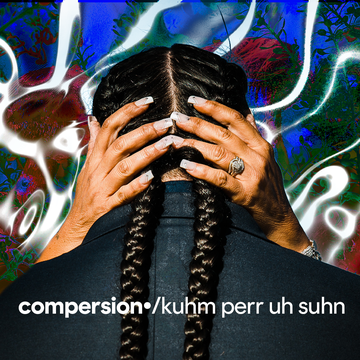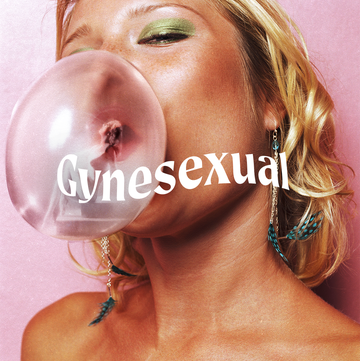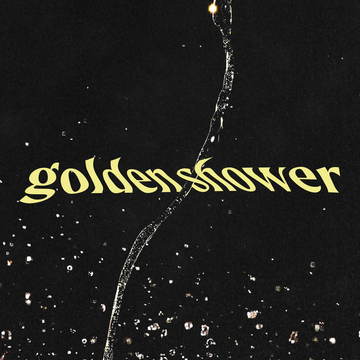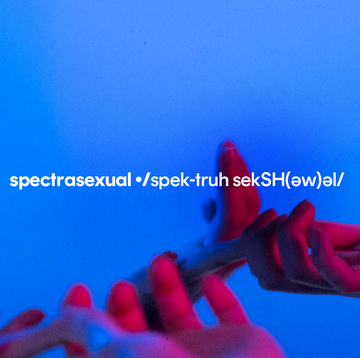If you’ve ever been on the “couldn’t be me but love that for you” side of any conversation, you’re kind of already on your way to understanding apothisexuality. Used interchangeably with the term “sex-repulsed,” apothisexual people fall on the asexual spectrum and are repulsed by the idea of sex that involves them. However, they are typically fine with others engaging in sex or sexual activities that don’t involve them.
A brief refresher on asexuality, ICYMI: Those who identify as asexual feel little to no sexual attraction toward others, but asexuality is also a spectrum with a number of sexual orientations and attractions that vary—apothisexuality included. In general, asexual folks are uninterested in sex and feel no sexual attraction whatsoever, but they’re not necessarily repulsed or disgusted by it. Apothisexual folks are repulsed by it, when and if it involves them, but they are typically fine with the idea of others engaging in sex or sexual activities.
However, that doesn’t mean apothisexual people don’t experience attraction at all. They do, it’s just not of a sexual nature. “Apothisexuals experience an emotional attraction to other people,” says certified sex and relationships therapist and psychotherapist Lee Phillips, EdD, LCSW, who explains that apothisexual people can be attracted to other things, like a person’s values, personality, interests, education, and employment status. “They can also find someone physically attractive, but they do not wish to have sex.”
Here’s what else you should know about apothisexuality.
Where Does the Term “Apothisexual” Come From?
Apothisexual borrows from the Greek word “apothisan,” which means “repulsed.” It’s important to clarify that individuals who identify as apothisexual are not against anyone else who engages in sex or the act of sex itself existing in the world. It’s a personal identification that relates only to that person’s sexual life.
Related terms:
Apothisexual vs. Apothiromantic vs. Asexual
It might be easy to confuse all the terms on the asexual spectrum, but it’s important to understand the distinctions between each one. Like we previously covered, apothisexuality can often get confused with asexuality. And even though both sexual orientations are uninterested in sex, apothisexual folks are sex-repulsed. Asexual folks might not be fully sex-repulsed, but they’re still not interested in sex. Nevertheless, “[asexual individuals] may engage in solo masturbation and engage in kissing/making out. Apothisexuals usually do not engage in these behaviors,” says Dr. Phillips.
A similar but different term is apothiromantic, which refers to people who are repulsed by any idea of romance (not necessarily sex, but rather, the romantic/emotional side of relationships). Apothiromantic is a romantic orientation, meaning it describes who someone is romantically attracted to, whereas apothisexuality is a sexual orientation, meaning what people are sexually attracted to.
How to Know if You’re Apothisexual
Like with any journey to learn about yourself and what you like and don’t like, experiences vary. For some folks who realize they’re apothisexual, anything from reading about sex or seeing it in a movie can make them uncomfortable. Others may feel fine seeing it in the media because someone else is experiencing it, but they’ll know they’re apothisexual if they feel disgusted by the idea of engaging in what they’re seeing.
Or perhaps upon engaging in sexual activity, an apothisexual person will realize it’s absolutely not for them, and the idea of doing it again makes them feel disgusted—sex is in no way enjoyable or fun. There is no one-size-fits-all realization, but generally, “someone will know they are apothisexual if they are sex-repulsed or even find sex to be disgusting,” says Dr. Phillips. “They may have friends who love sex, [but] apothisexuals do not seek out sexual relationships.”
It’s important to regard apothisexuality as a true sexual orientation, however, it is possible that feelings of apothisexuality may decrease, increase, or change over time. “I think we can get curious on why they are sex-repulsed, and this could be for many reasons,” says Dr. Phillips. “There is a possibility they have experienced sexual trauma in the past or they have experienced negative sexual experiences leading them to finding sex disgusting. There is also the possibility they grew up in a conservative home where they received negative sexual messages from their parents or caretakers and this has carried with them throughout their life.” However, it’s important to understand that apothisexuality doesn’t always have to stem from trauma, just like many sexual orientations can’t be explained.
Dr. Phillips notes that people can change and apothisexual individuals may get curious about sex if they find the right partner and they feel safe. This doesn’t mean that apothisexuality is something to “fix” or change, it just means that, like any orientation, it can change and evolve over time.
How to Celebrate Being Apothisexual
Apothisexuality is something to be accepted and celebrated—never something to be ashamed of. “The antidote for shame is self-compassion,” says Dr. Phillips. “So, it is important to accept who you are and embrace your apothisexuality.”
No matter what your orientation is, it’s important to have a support system on your side, whether that’s a friend group, family, or chosen family.
“It is beneficial to build relationships with individuals who encourage us to be the best version of ourselves by providing encouragement, support, and feedback,” says Dr. Phillips. “If we are in relationships where our boundaries are not respected or valued, it may be helpful to re-evaluate the amount of time we spend in these relationships.”
If you’d like to read more about other people’s experiences with apothisexuality or apothiromanticism, there are Reddit groups and other online forums where apothisexual individuals can come together and build community. Asexual Visibility and Education Network (AVEN) is the the world’s largest online asexual community, where you’ll find online forums that can connect you with other folks on the ace spectrum and help you find answers to any questions you might have. You should also feel empowered to celebrate Ace Week (formerly Asexual Awareness Week), which takes place every October, where you can discover ace communities and attend events that’ll help you stand proud in your apothisexuality.
Brittany Leitner (she/her) is a freelance journalist and poet originally from San Antonio, Texas, and now is based in Brooklyn. She was formerly the managing editor of The Dr. Oz Show and senior editor of Elite Daily. Her work covers health, beauty, skincare, and relationship trends and she’s the recipient of a 2019 Digital Health award for her work in health journalism. Follow her on Instagram.












